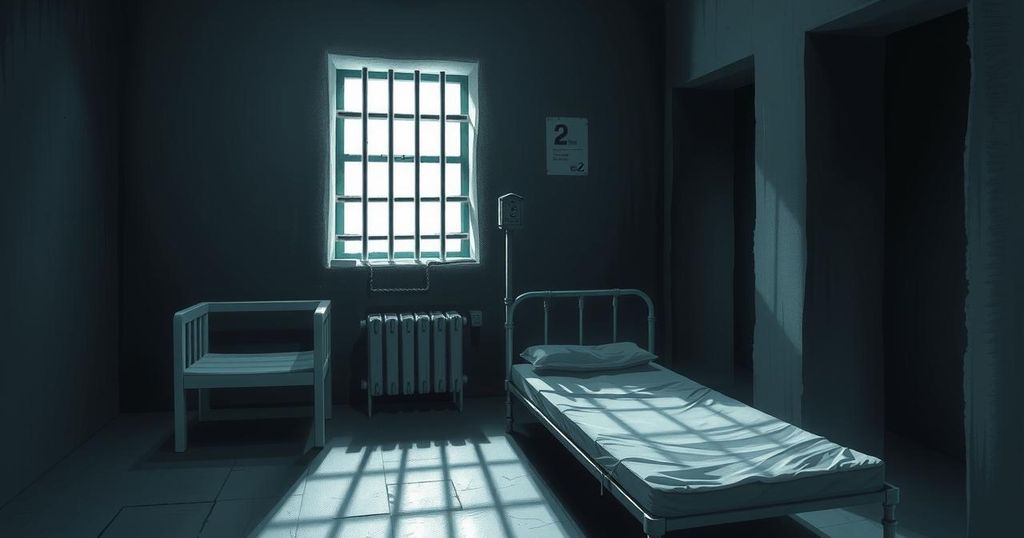Amnesty International has called on Egyptian authorities to end reprisals against detainees at 10th of Ramadan Prison following a hunger strike protesting inhumane conditions and arbitrary detention. Demands included the release of long-held prisoners and better treatment. Post-strike, authorities relocated some detainees to harsher prisons, raising concerns over human rights violations and inadequate oversight.
Amnesty International has urged the Egyptian authorities to cease the reprisals against detainees at 10th of Ramadan Prison following a hunger strike protesting their arbitrary detention. The strike was initiated by several detainees in early January in response to the inhumane conditions, with demands for the release of individuals held beyond six months, access to outdoor exercise, full visitation rights, and the removal of a National Security Agency officer allegedly responsible for abusive behavior.
In retaliation, authorities have reportedly transferred at least three detainees to prisons recognized for their harsh conditions and confiscated their personal belongings. Mahmoud Shalaby, the Egypt Researcher at Amnesty International, emphasized the authorities’ intent to silence the prisoners rather than address the deplorable situation. He noted that even in newly built prisons like 10th of Ramadan, detainees continue to suffer abuses without adequate oversight.
Shalaby insisted that Egypt must enhance detention conditions and permit international observers access to these facilities. He urged the government to ensure humane conditions in accordance with international laws, namely the Nelson Mandela Rules, and to allow independent monitoring of prisons by both Egyptian and international bodies.
Family members of transferees disclosed that authorities had relocated their relatives to prisons situated hundreds of kilometers away, a practice referred to as “Taghriba” or internal exile, commonly employed by Egyptian authorities as a form of punishment. One relative revealed that a detainee was denied necessary medical treatment and transferred merely for attempting to communicate with his political party for assistance.
10th of Ramadan Prison, established in 2023 under the administration of President Abdel Fattah al-Sisi, was promoted as a facility to improve detention methodologies. However, since the 2013 coup that ousted the democratically elected president Mohammed Morsi, numerous political opponents and dissidents have faced unjust detention and maltreatment.
The Egyptian Initiative for Personal Rights (EIPR) reported on 12 January regarding the worsening conditions within 10th of Ramadan, prompting officials to investigate EIPR’s executive director for allegedly disseminating false information. Amnesty International’s prior research revealed that many prisoners of conscience in Egyptian facilities are subjected to torture, inhumane treatment, and denial of medical care, particularly those opposing the government.
The situation in Egyptian prisons, particularly following the protests at 10th of Ramadan Prison, illustrates a significant violation of both human rights and legal standards. The punitive actions taken against the detainees for voicing concerns about their conditions highlight the oppressive measures employed by authorities. It is imperative that the Egyptian government addresses these issues, improves treatment, and allows independent observations to ensure adherence to international human rights protocols. Continuing detainee abuse undermines any claims of reform in Egypt’s penal system.
Original Source: www.newarab.com






